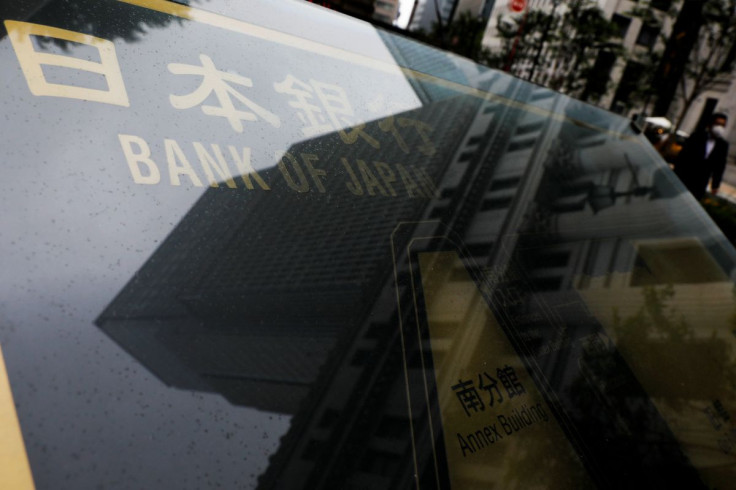BOJ Maintains Huge Stimulus, Warns Of Growth Risks From Ukraine Crisis

The Bank of Japan maintained its massive stimulus on Friday and warned of heightening risks to a fragile economic recovery from the Ukraine crisis, reinforcing expectations that it will stay an outlier in the global shift towards tighter monetary policy.
Governor Haruhiko Kuroda said there was no need for the BOJ to withdraw stimulus as an expected pick-up in inflation will be driven mostly by surging prices of energy and raw materials.
"There's a chance Japan will see inflation move around 2% from April onward," he told a news conference. "But most of that is due to rising commodity prices, so there's no reason to tighten monetary policy. Doing so would be inappropriate."
The bank's dovish tone is in stark contrast with the U.S. Federal Reserve and the Bank of England, which raised interest rates this week to keep fast-rising inflation from becoming entrenched.
As widely expected, the BOJ maintained its short-term rate target at -0.1% and that for the 10-year bond yield around 0% at the two-day policy meeting that ended on Friday.
"Japan's economy is picking up as a trend," the bank said in a statement. The view was less optimistic than at its previous meeting in January, when it said the economy was showing "clearer signs of pick-up".
The central bank also warned of fresh risks from the Ukraine crisis, which it said was destabilising financial markets and sharply pushing up raw material costs.
"There is very high uncertainty on the impact developments in Ukraine could have on Japan's economy and prices via markets, raw material prices and overseas economies," it added in the statement.
The central bank downgraded its view on consumption to say a pick-up had "paused," because of a surge in infections with the Omicron variant of coronavirus.
The world's third-largest economy is likely to have seen growth stall in the current quarter as supply disruptions and COVID-19 curbs hobbled output and consumption.
Earlier in the day, data showed Japan's core consumer prices rose 0.6% in February on the year, for the fastest pace in two years, in a sign of growing inflationary pressure from higher energy costs.
But that is still much lower than 5.9% in the euro zone and 7.9% in the United States, where inflation is becoming entrenched as wage growth accelerates.
That is not the case in Japan, where the rise in inflation is driven mostly by supply-side forces, such as higher costs of raw material.
Some analysts doubt whether households can stomach further price rises if wages do not pick up much.
In a sign of the pain for households from rising fuel costs, energy and electricity bills both shot up by about a fifth in February from year-earlier levels, the fastest pace since 1981.
"With inflation and wage growth lagging other countries, the BOJ has no choice but to patiently maintain stimulus at least until Kuroda serves out his term in April 2023," said Hiroshi Shiraishi, a senior economist at BNP Paribas Securities.
© Copyright Thomson Reuters {{Year}}. All rights reserved.





















